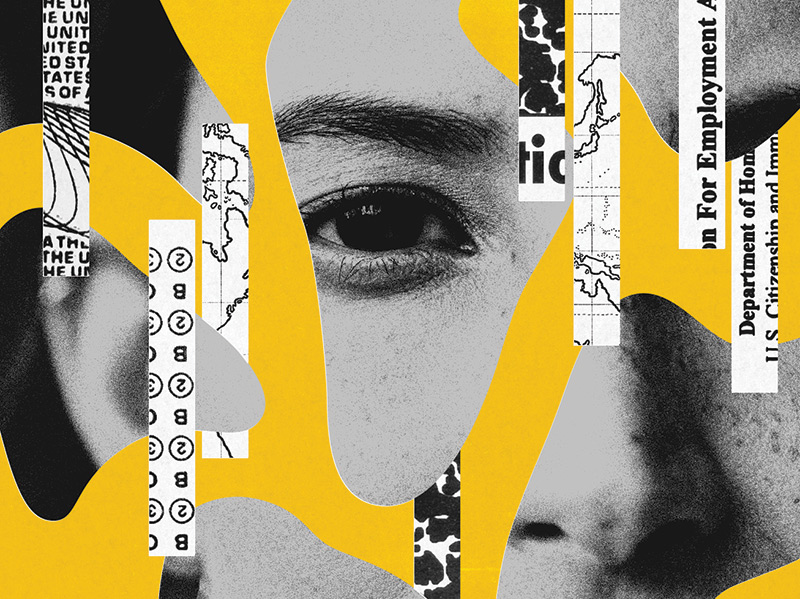
In 2014, Mary Awofodu, a sophomore political science major, arrived in the United States from Nigeria at the age of 9. She faced significant adjustments, some that were hard to understand: Unlike her new friends, she wouldn’t be able to one day get a driver’s license or perhaps even a job. The sense of exclusion, she remembers, was her biggest challenge.
As the prospect of college approached, Awofodu remained worried. “Because of my status, I had to stand out to get noticed by colleges.” That was true especially if she hoped to receive scholarships. She not only took AP classes when she could, Awofodu felt she needed to spend as much time as possible on excelling at basic tasks as well as school activities, in order to be noticed despite her status. By the end of high school, she ranked third among 351 students and was the senior class vice president. Today, she is a policy and education advocate in the new LMU office, where she helps her peers learn about their rights as well as resources and programs.
The challenges faced by undocumented students, however, do not end upon enrolling in university, and they are wide-ranging.
“Our philosophy of education is about inclusivity. Our work in DEI issues is grounded and steeped in Catholic Social Teaching.”
—José Badenes, S.J., Associate Provost for Undergraduate Education
In July 2023, LMU launched a new office to support undocumented students, including those registered in the Deferred Action on Childhood Arrivals program. The Office of Undocumented Student Support Services, a program of both LMU’s Academic Affairs and Student Affairs divisions, provides help to students in areas from academic to emotional and personal well-being.
José Badenes, S.J., associate provost for undergraduate education, says that undocumented students are supported by the university’s academic services such as the ones provided by the Academic Resource Center and the Katz Family Academic Learning Skills Progam. Additionally, undocumented students benefit from the support first-generation students receive from the First to Go Program and the Ignacio Student Support Services Program. Furthermore, these students also benefit from being connected with and mentored by faculty members “who have been supporting first-generation and undocumented students for years.”
Beyond the classroom, LMU’s Student Affairs division provides resources and support to help undocumented students deal with many other aspects of life at university, says Terri Mangione, dean of students and vice president of Student Affairs.
“One of our primary values at LMU,” Mangione says, “is care for the whole person. So our goal for Undocumented Student Support Services is to assess the wholistic needs of our undocumented students and then assist in meeting those needs. Our undocumented students come to LMU with varied life experiences, and we want to be sensitive to those differences in needs. There is a risk in generalizing.”
Undocumented students defy many generalizations, says Maria Barragán, director of the Office of Undocumented Student Support Services. But what they frequently have in common is an acute obstacle: lack of access to financial resources to cover tuition, housing, transportation and food costs. “They have to find creative ways to generate income.”
Undocumented students, Barragán explains, “don’t have access to federal grants or federal aid. They also have limited access to paid professional development opportunities, such as internships and fellowships.
Barragán, who became a naturalized citizen in 2021, says finances also were her greatest concern, especially because the cost of college would burden her parents. But a two-year scholarship made all the difference.
“If it weren’t for that scholarship, I don’t think I would’ve gone to college,” Barragán says.
Barragán brings more than her shared experience to her work with students. She directed the Undocumented Student Success Center at California State University, San Bernardino, where she received the President’s Outstanding Employee Award. She co-founded the first undocumented alumni chapter in the California State University system.
Although undocumented students, merely by their presence, are part of America’s deeply charge political environment, Badenes believes supporting them is central to the mission of a Jesuit, Catholic university.
“Our philosophy of education is about inclusivity,” he says. “Our work in DEI issues is grounded and steeped in Catholic Social Teaching and specifically in the Jesuits’ focus on serving the faith and promoting justice, specifically by providing access to students in all walks of life, including undocumented students. We are mindful always of those underrepresented populations and want to give them access.”
